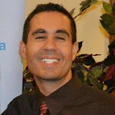People who have self-confidence believe in themselves and feel
that they are capable of achieving what they want in life, or
dealing with any situation that they may have to face. They have
an aura of self-confidence and self-assurance, which is apparent
to others. People like to spend time with them; they feel
comfortable and secure in their presence.
In contrast, there are many people who are reasonably talented,
but who lack self-confidence. These people are victims of the
several myths that surround self-confidence.
1. One of the foremost myths about self-confidence is that people
are born with self-confidence. It is a quality that cannot be
acquired. Nothing can be farther from truth. Self-confidence,
like other skills, can be built. All that you need is right
guidance and a belief in yourself.
2. There are others who blame their low self-confidence to their
lack of good looks and poor upbringing. They don't realize that
self-confidence has nothing to do with their looks. It is a
reflection of one's confidence. The only way they can overcome
this myth is by learning to believe in themselves. In fact,
talent and self-confidence are not inter-related.
There are scores of talented actors and actresses who do very
well in their professions but whose personal lives are torn by
lack of self-confidence. It may sound contradictory, but this
is how life is.
Talent can be an important component of self-confidence, but it
is certainly not a substitute for self-confidence. So, don't
worry about lack of talent. Harness the skills that you possess.
3. Another myth is that self-confidence is directly proportional to
the recognition and praise that an individual gets in his or her
life; the ones who are not so lucky wallow in self-pity. Once
again, there is little doubt that recognition and praise make you
feel good about yourself, and boost your self-confidence.
But you can't simply depend on the praise lavished by others.
You have to work hard to earn that praise, and you can do this
only if you are self-confident. The same applies to those who are not
successful. They, too, can earn praise if they work hard and win
people's respect.
Such people should look at children. Children believe in
themselves, and this gives them the self-confidence to try to do
things they have never done before, be it learning how to cycle
or how to swim.
In fact, no child comes into the world knowing
all the skills. But it does not take long to teach children most
of the basic skills. Then, why should it be difficult for adults
to learn new skills or brave new challenges?
4. Another myth is that only self-confident people can afford to
take risks. This again is not true. In fact, self-confident
people are more realistic about their capabilities. They know
what they can do, and what they can't do. More importantly, they
know how to deal with failures.
In contrast, people who lack self-confidence are afraid of failure.
This fear prevents them from taking on new tasks. They constantly
pine for the approval of others, and when they don't get it
they end up losing their self-confidence.
What is apparent is the lack of understanding. People must
realize that self-confidence is a state of mind. It is not
dependent upon a person's beauty or looks. It flows from a
person's self-belief, and this belief can be built.
All that a person needs to do is to debunk myths that self-
confidence cannot be acquired or that self-confidence is a
byproduct of exceptional knowledge, skills and luck.
Once they do so, they will find it easier to acquire the
same magnetic powers that self-confident people have.
To discover how to overcome the #1 obstacle that will keep
you from success and to get a fr'e mini-course that reveals
how to change your limiting thinking and how to increase the
level of your self-esteem to set yourself free, go to
http://www.vision-to-action.com

Post new comment
Please Register or Login to post new comment.